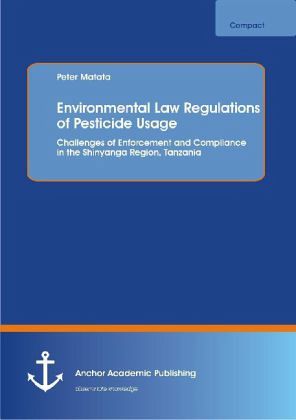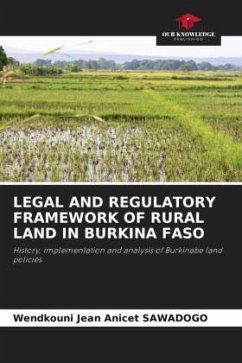
Environmental Law Regulations of Pesticide Usage: Challenges of Enforcement and Compliance in the Shinyanga Region, Tanzania
Versandkostenfrei!
Versandfertig in 6-10 Tagen
39,99 €
inkl. MwSt.

PAYBACK Punkte
0 °P sammeln!
The lack of compliance and enforcement of agricultural chemical use legislation in Tanzania has raised concerns due to the significant environmental and public health threats that result from the unregulated discharge of industrial effluents. The utilization of the Table of Eleven tool, a behaviour-analysis model providing insight into the level of legislative compliance, makes it possible to explore motives that encourage farmers to comply with, or violate, the existing agricultural chemical use legislation. This paper discusses how the application of the Table of Eleven tool has enabled the ...
The lack of compliance and enforcement of agricultural chemical use legislation in Tanzania has raised concerns due to the significant environmental and public health threats that result from the unregulated discharge of industrial effluents. The utilization of the Table of Eleven tool, a behaviour-analysis model providing insight into the level of legislative compliance, makes it possible to explore motives that encourage farmers to comply with, or violate, the existing agricultural chemical use legislation. This paper discusses how the application of the Table of Eleven tool has enabled the government of Tanzania to reveal strong and weak points pertaining to the compliance and enforcement of the agricultural chemical use legislation. As a result, it is clear that more attention is needed to improve comprehension of the legislation and to increase the use of incentives and economic instruments. Future steps should include applying this knowledge to the development of environmental indicators.














